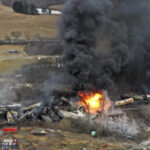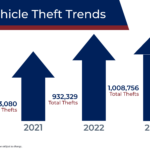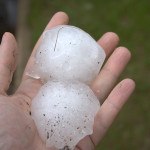The storms that have battered Haiti since August caused nearly $1 billion of damage, World Bank President Robert Zoellick said Wednesday.
“That’s a lot for a country of 8 million people and there’s been a terrible loss of lives,” Zoellick told journalists as he concluded a three-day visit to Haiti. “The devastation is widespread and it makes your eye pop.”
The loss is enormous in a poor country whose gross domestic product was estimated at about $11.4 billion last year.
Zoellick urged donors to give more money to help Haiti and compared the scale of the devastation by saying, “Imagine Hurricane Katrina had affected almost the whole country (the United States) and a much poorer country.”
Four tropical storms and hurricanes deluged Haiti in August and September, bringing floods that killed more than 800 people.
The World Bank announced earlier this month it would give $25 million in additional emergency grants to help rebuild bridges and make other infrastructure repairs. The Caribbean country — the poorest in the Western Hemisphere — also received a $10 million grant from the World Bank to help the government respond to soaring food prices.
The bank intends to help with watershed management, drainage, soil protection, reforestation efforts and other measures aimed at mitigating storm damage. Some insurance programs developed in other countries may also be implemented in Haiti, bank officials said.
“You can still see the effects of the flooding in terms of taking up roads and bridges and very deep mud that blocks irrigation and roads,” Zoellick said after visiting hard-hit areas where people are still housed in shelters.
The World Bank has already forgiven half of Haiti’s foreign debt and the rest could be erased by the middle of next year, according to World Bank officials. Haiti’s foreign debt amounts to $1.69 billion, including $550 million to the World Bank.
“Haiti’s fate is tied with its geography because it is in the midst of a hurricane route — which is no good,” Zoellick said. “But it is also close to one of the biggest markets in the world and that is an advantage. We need to minimize risks and dangers and build on advantages.”
(Editing by Jane Sutton)
Was this article valuable?
Here are more articles you may enjoy.

 Norfolk Southern to Pay $600 Million to Settle Ohio Spill Case
Norfolk Southern to Pay $600 Million to Settle Ohio Spill Case  Poll: Consumers OK with AI in P/C Insurance, but Not So Much for Claims and Underwriting
Poll: Consumers OK with AI in P/C Insurance, but Not So Much for Claims and Underwriting  National Crime Report Shows Vehicle Thefts Surged to More than 1 Million in 2023
National Crime Report Shows Vehicle Thefts Surged to More than 1 Million in 2023  CoreLogic Report Probes Evolving Severe Convective Storm Risk Landscape
CoreLogic Report Probes Evolving Severe Convective Storm Risk Landscape 